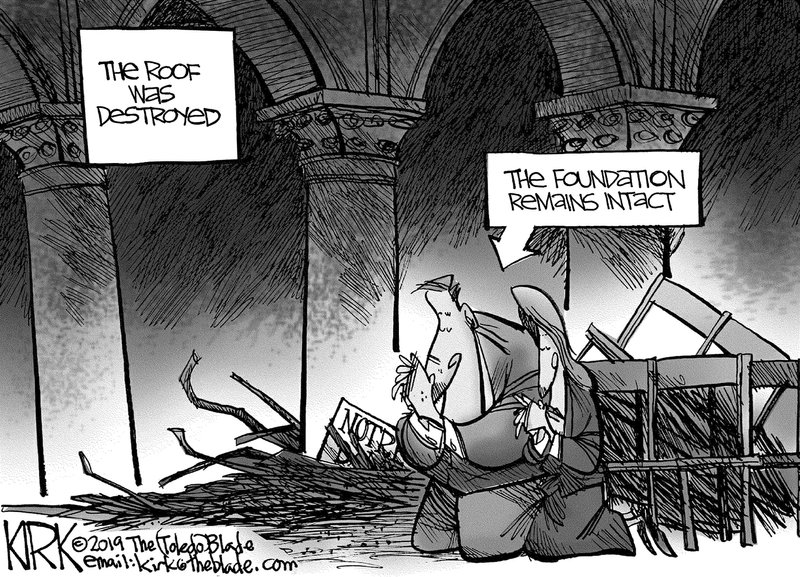In a world far away, a half dozen men shrugged into heavy packs laden with explosives. They had a final delivery to make as they prepared to exit this life. Around them, the world carried on as though there was nothing unusual. But this was not a typical Easter morning. This was Sunday in Sri Lanka.
In Sri Lanka, like everywhere around the globe, Christian worshippers assembled to celebrate their highest holy day, the yearly event when Jesus' resurrection from the grave is commemorated. People gathered in auditoriums decorated with lilies. Families sang hymns, read the Bible, took communion, and greeted one another. They passed the peace of Christ.
In this idyllic setting, a coordinated attack by bearded Muslim men calmly exploding concealed bombs shocked the world. The horrific blasts killed hundreds of Christians plus many western travelers eating brunch at hotels. The solemnity of Sunday observances was shattered with roaring blasts straight out of hell. Deranged religious jihadists had again persecuted the followers of Jesus.
If you know the story of Jesus, you will recognize familiar verses in the Bible where Christ warned us of persecution to come. He said, "If they hate Me, they will hate you also." Jesus prepared his first followers for tough times. "They (the Jews) will make you outcasts from the synagogue." The Jews had two places of worship, the main Temple in Jerusalem plus synagogues elsewhere. The synagogues were like local churches.
All of Jesus' initial disciples were Jewish. For anyone who toys with antisemitism (prejudice against Jews), I remind you that our Savior was a Jew. Jesus said anyone who hates in the name of religion is unwittingly motivated by Satan. (Luke 9:51-56)
During the church's expansion after the Feast of Pentecost in Jerusalem, the church quickly grew. In Israel, many citizens became believers as more Jews recognized Jesus as Messiah. Later, the church began to reach non-Jewish people all over the Roman Empire. These non-Jewish converts were Gentiles, people who didn't have the Old Testament law and prophets, the heritage of the Jews. Gentiles weren't looking for a prophesied Messiah like the Jews were.
The main thing that won Gentiles to faith in Jesus were reports of the resurrection, the healing miracles by the Holy Spirit, and the loving community experienced in the churches.
What about non-Jewish Gentiles? Will modern believers experience persecution like the disciples of Jesus did back then? I believe we are witnessing one aspect of this already. While some evangelical preachers hold to the Left Behind theory about the Tribulation, I do not. That specific dreadful event against the Jews has already happened. It hit the Jews in 70 A.D. when Jerusalem was surrounded by a Roman army and their Temple was destroyed.
Concerning further persecution of believers, yes, we see it happening. One aspect of this is the dislike that non-believers display to push back against any Christian's witness. Deliberate unbelievers love sin. They choose the world. They resist anyone who loves Jesus. This is low-level persecution, mockery. High-level hatred is another matter. We see it in the news. The Easter Sunday blast in Sri Lanka was an example of demonically motivated enmity against Christ's followers. Jesus predicted this terrible persecution when he said, "An hour is coming for everyone who kills you to think that he is offering service to God." (John 16: 1-4) That's what jihadists think as they immolate themselves while killing Christians.
What's the answer? First, don't stumble over persecution. Keep the faith. (John 16:1) Second, love your enemies. Love overcomes and wins. (Matt. 5:44)
-- Ron Wood is a writer and minister. Email him at [email protected] or visit www.touchedbygrace.org. The opinions expressed are those of the author.
Editorial on 05/01/2019
